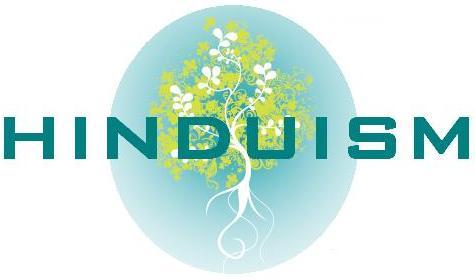SAN FRANCISCO–(BUSINESS WIRE)–The Hindu American Foundation (HAF), the advocacy organization for the Hindu American community, has today announced the release of its 2016 Bullying in American Schools report. The report includes testimonies and data demonstrating how Hindu American students are being singled out, bullied, and ostracized by their peers, largely due to academic curricula that reinforce negative and inaccurate stereotypes.
“the caste system only exists because of Hinduism”
“For many years the American perception of Hinduism has been wrong, in large part due to the content of textbooks, and our kids pay the price,” said Samir Kalra, Esq. Senior Director and Human Rights Fellow of theHindu American Foundation. “These textbooks have enormous power in shaping the only ‘official’ information many young Americans will ever see—and the impression they will form—regarding the sizable and growing block of their peers who practice Hinduism.”
The bullying report has several key findings:
- One out of three respondents said they had been bullied for their religious beliefs
- Half of the total sample size indicated feelings of awkwardness or social isolation because of their religious identity
- More than three out of five respondents said that their schools focus on caste and Hinduism, including inaccurate claims about the religion and Indian social practice
- About one in eight respondents said their teachers made sarcastic remarks about Hinduism in front of a class
- About one out of every four respondents surveyed said she/he was put on the spot or singled out by a teacher when the section on Hinduism was discussed
- About one in four respondents said they had been bullied within the past year, with about a third saying those who bullied them were “making fun of Hindu traditions”
Of those who had shared anecdotes, most highlighted a sense of alienation for being a different religion, particularly one not understood well in most U.S. classrooms or textbooks. As a result, some respondents said they hid their religious identity in order to prevent or stop bullying. Others reported deep emotional scars from bullying incidents.
A 12th grader from Denton, TX explained: “…I have had countless people try to convert me or mock my religion at school. This started as early as kindergarten and persisted through high school. It actually reinforces my love for Hinduism, for it is a non proselytizing religion that accepts all views and opinions, but no Hindu child should have to deal with such intolerance and coldhearted mockery, especially in school. Having an incomplete, brief, and completely generalized unit which only focuses on negative aspects of Hinduism, if that, does not help to dispel the persistent stereotypes. I have seen too many friends give up on their faith and hide their Hindu identity to avoid being socially isolated.”
Inaccuracies in instructional content
One of the biggest sources of anxiety cited by the youths in the bullying report was the way their religion is inaccurately portrayed in textbooks.
- 63 percent of surveyed youths reported that their units on Hinduism included claims that Hindus worship cows as a sacred animal
- About 53 percent said that their units described Hindus as worshiping idols
- Nearly 25 percent reported that their classes taught that “most Hindus do not believe in dating and will get an arranged marriage”
- 60 percent reported that Hinduism was linked with the caste system, with 47 percent noting that their units on Hinduism taught them that “higher castes discriminate against lower castes”
- 40 percent of respondents said their units taught them that “individuals can only marry people of the same caste”
- 20 percent said their instructional content claimed that “the caste system only exists because of Hinduism”
Promoting cultural competency
The release of the bullying report is part of HAF’s larger campaign to help foster safe spaces for Hindu American students and promote cultural competency in classrooms across America. The pilot study is just one step towards helping lessen the alienation that many Hindu American schoolchildren face in schools. HAF is a participating organization in the White House Initiative on Asian American Pacific Islanders Act to Change efforts to combat bullying and bias.
HAF’s efforts in the classroom focus on cultural competency, to empower educators and ensuring that instructional materials are accurate for diverse learning communities. HAF has participated in numerous curriculum reform efforts across the country, including the ongoing effort in California. In May, a final decision will be reached by the CDE, and a final draft of the framework will be created.
“Our efforts have always been focused on a pluralistic and progressive understanding of Hinduism within classrooms that is on par with the way other faith traditions are taught,” said Murali Balaji, director of education and curriculum reform. “More accurate instructional materials can certainly be one of the factors in mitigating anti-Hindu bias and bullying while helping to create safe learning environments for all students.”
About the Hindu American Foundation
The Hindu American Foundation (HAF) is an advocacy organization for the Hindu American community. The Foundation educates the public about Hinduism, speaks out about issues affecting Hindus worldwide, and builds bridges with institutions and individuals whose work aligns with HAF’s objectives. HAF focuses on human and civil rights, public policy, media, academia, and interfaith relations. Through its advocacy efforts, HAF seeks to cultivate leaders and empower future generations of Hindu Americans. The Hindu American Foundation is not affiliated with any religious or political organizations or entities. HAF seeks to serve Hindu Americans across all sampradayas (Hindu religious traditions) regardless of race, color, national origin, citizenship, caste, gender, sexual orientation, age and/or disability.






